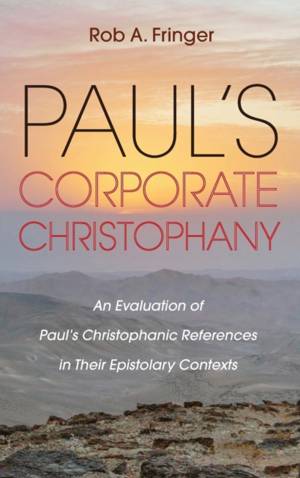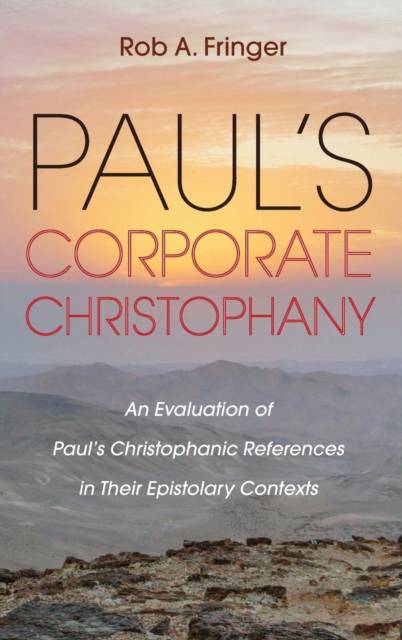
- Retrait gratuit dans votre magasin Club
- 7.000.000 titres dans notre catalogue
- Payer en toute sécurité
- Toujours un magasin près de chez vous
- Retrait gratuit dans votre magasin Club
- 7.000.0000 titres dans notre catalogue
- Payer en toute sécurité
- Toujours un magasin près de chez vous
Paul's Corporate Christophany
An Evaluation of Paul's Christophanic References in Their Epistolary Contexts
Rob A Fringer
Livre relié | Anglais
74,95 €
+ 149 points
Format
Description
Paul's Christophany (i.e., his Damascus Road Experience) has been the subject of much scholarly analysis. However, treatments of this phenomenon, while widely varied, have tended to extract the various references from their literary contexts in order to reconstruct the event, to discover the foundations and content of Paul's Christology, or to analyze Paul's experience of conversion and/or call. The current study, focused on the undisputed Pauline epistles, evaluates how and why Paul employed the various Christophanic references in their particular literary and sociohistorical contexts. Through this assessment, the importance of Paul's Christophanic references as part of his larger arguments is established. It is shown how Paul uniquely shapes the various Christophanic references to fit the needs of his argument and through it, the needs of each community. Furthermore, this study demonstrates that Paul's Christophanic references do not primarily establish his apostolic status or assert his apostolic authority. Through this study, the corporate nature of Paul's Christophanic references becomes increasingly evident, and multiple general conclusions are drawn, which provide a possible glimpse into Paul's understanding of his Christophanic experience.
Spécifications
Parties prenantes
- Auteur(s) :
- Editeur:
Contenu
- Nombre de pages :
- 250
- Langue:
- Anglais
Caractéristiques
- EAN:
- 9781532645297
- Date de parution :
- 28-02-19
- Format:
- Livre relié
- Format numérique:
- Genaaid
- Dimensions :
- 152 mm x 229 mm
- Poids :
- 508 g

Les avis
Nous publions uniquement les avis qui respectent les conditions requises. Consultez nos conditions pour les avis.






